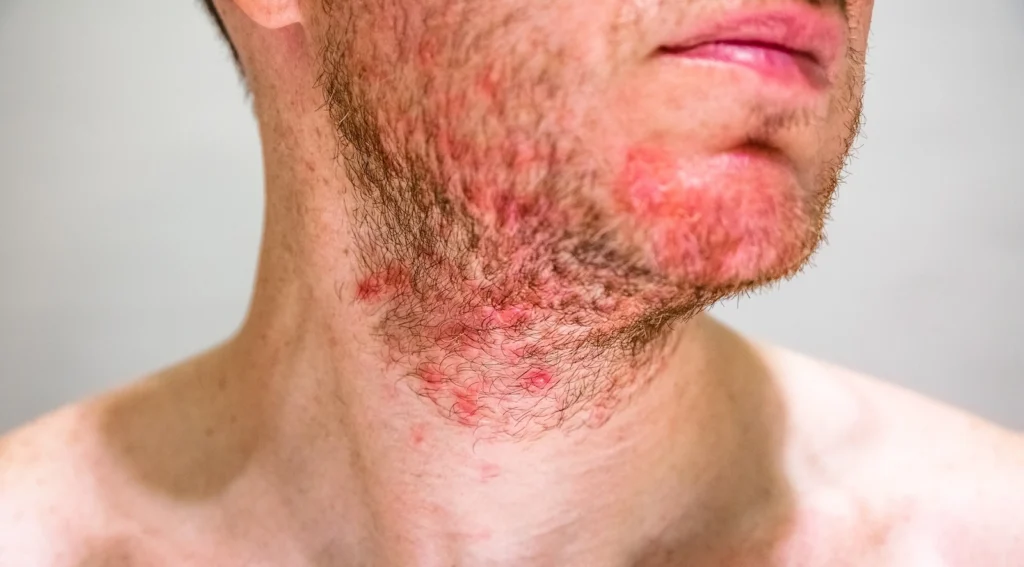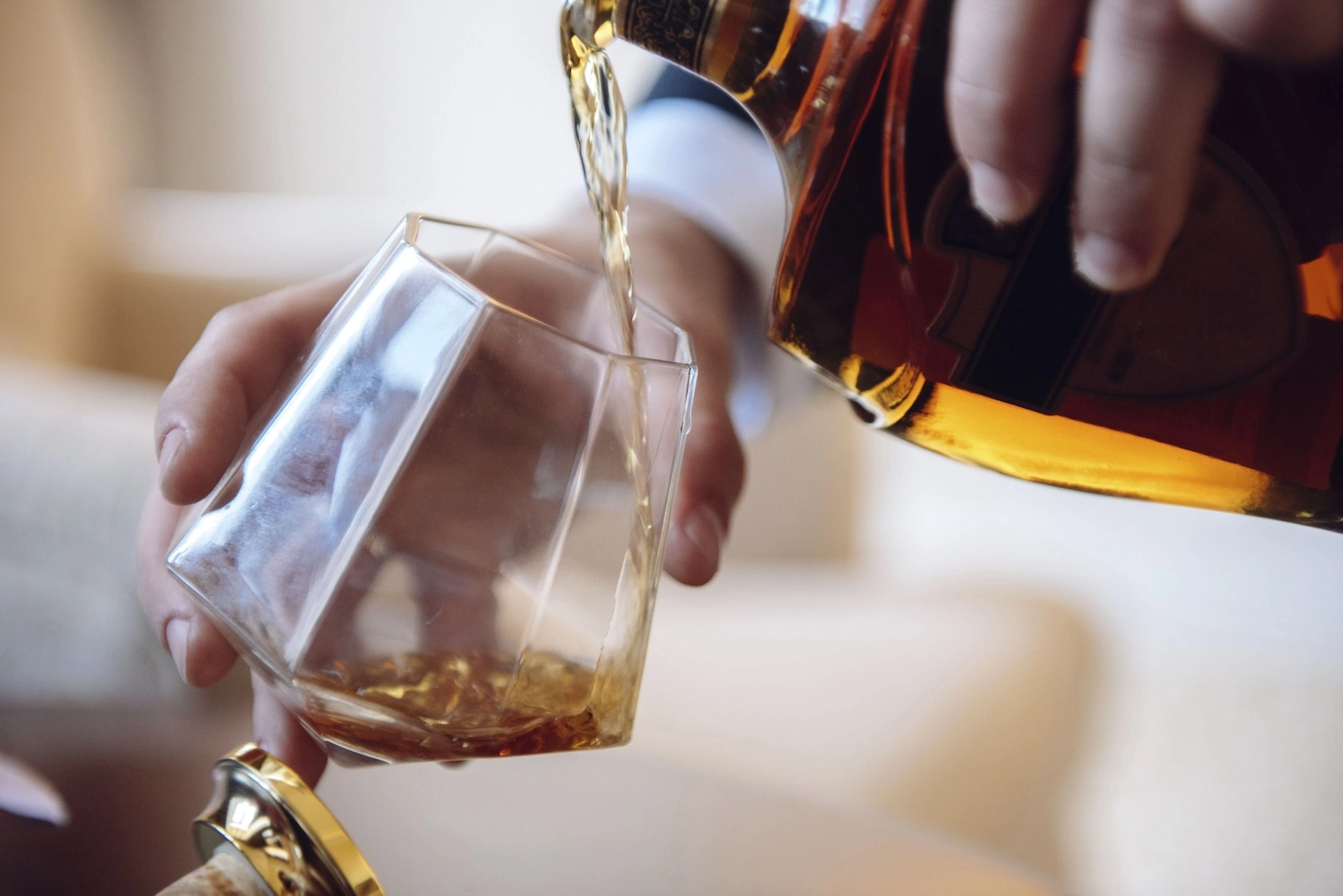No. Medical professionals strongly advise against drinking alcohol while taking Accutane due to the potentially serious health risks involved.
Accutane (isotretinoin) is a powerful acne medication that requires careful consideration of your lifestyle habits during treatment, particularly regarding alcohol consumption. .
Both substances are processed by your liver, creating a dangerous combination that can lead to elevated liver enzymes, increased hepatotoxicity, and compromised treatment effectiveness. Additionally, drinking while on Accutane can worsen common side effects like dehydration, dry skin, and photosensitivity, while potentially exacerbating mental health concerns such as depression.
Key Points
- Accutane (isotretinoin) is a powerful acne medication that doctors strongly advise should not be combined with alcohol due to serious health risks.
- The medication works by reducing oil production and is typically prescribed as a last resort for severe acne when other treatments have failed.
- Accutane requires careful medical supervision due to significant side effects, including extreme dryness, birth defect risks, and potential liver function changes.
- Drinking alcohol while on Accutane can damage your liver, worsen side effects like dehydration and skin dryness, raise triglyceride levels, and potentially lead to increased risk of depression.
- If you choose to drink despite medical advice, strategies to reduce harm include informing your doctor, limiting consumption to rare occasions, choosing lower-alcohol options, and staying well-hydrated.
What is Accutane?
Accutane is a powerful prescription medication primarily used to treat severe, cystic acne that hasn’t responded to other treatments.[1] It belongs to a class of drugs called retinoids, which are vitamin A derivatives, and works by dramatically reducing oil production in the skin, shrinking oil glands, and altering skin cell behavior to prevent clogged pores.
This medication is typically reserved as a last resort when other treatments like topical creams, antibiotics, and hormonal therapies have failed because of its potency and potential for serious side effects. Accutane treatment usually lasts four to six months, during which most people experience a significant and often permanent improvement in their acne.
Despite its effectiveness, Accutane requires careful medical supervision due to its considerable risks and adverse effects. The medication is highly teratogenic, meaning it can cause severe birth defects if taken during pregnancy, which is why people who can become pregnant must follow strict contraception requirements and regular pregnancy testing during treatment.[2] Other common side effects include extreme dryness of the skin, lips, and eyes, increased sensitivity to sunlight, joint and muscle pain, and potential changes in cholesterol levels and liver function.
Less commonly, Accutane has been associated with mood changes, depression, and inflammatory bowel disease, though research on these connections remains ongoing.[3] Because of these risks, doctors monitor patients closely with regular blood tests and consultations throughout treatment.
Is Accutane Safe?

Accutane is considered safe when used correctly under medical supervision, but it does come with significant risks that require careful monitoring. Healthcare providers screen patients thoroughly before prescribing Accutane and conduct regular blood tests during treatment to check liver function and cholesterol levels. The medication causes severe birth defects, which is why strict pregnancy prevention measures are required for patients who can become pregnant. Other common side effects include extremely dry skin, lips and eyes, sun sensitivity, and occasionally joint pain. Less common but more serious risks include mood changes and depression.
For most people with severe acne that hasn’t responded to other treatments, the benefits of clear skin often outweigh these monitored risks. However, the decision should always involve a detailed conversation with your doctor.
Is It Safe to Drink Alcohol While on Accutane?
No, it is not safe to drink alcohol while taking Accutane.[4] The combination creates a dangerous situation for your body, particularly your liver. Both substances require liver processing, forcing this vital organ to work overtime. When your liver tries to metabolize both Accutane and alcohol simultaneously, it can lead to inflammation and potential damage, shown through elevated liver enzymes in blood tests.
Since both Accutane and alcohol have dehydrating effects, combining them intensifies skin dryness, which is already a significant side effect of the medication. This can worsen the uncomfortable dryness of lips, eyes, and skin during treatment. Additionally, both substances can affect triglyceride levels in your blood, and when used together, they may cause these levels to spike dangerously high.[5]
There are also mental health considerations to be aware of. Some research suggests Accutane may affect mood in certain patients, and alcohol is a known depressant. Using both concurrently could potentially increase the risk of mood disturbances or depression. Furthermore, judgment impairment from alcohol might lead to forgetting crucial aspects of Accutane treatment, such as strict birth control requirements for patients who can become pregnant.
Most dermatologists and healthcare professionals advise complete abstinence from alcohol during your entire Accutane treatment course, which typically spans four to six months, and possibly for a period after completion.
The Risks of Drinking While on Accutane
Combining alcohol with Accutane creates potentially serious health risks:[6]
- Liver inflammation and risk of liver damage since both substances require processing by your liver, creating excessive strain
- Dangerously elevated triglyceride levels that can increase cardiovascular risks
- Intensified dehydration as both substances have strong dehydrating effects
- Worsened skin and mucous membrane dryness beyond Accutane’s already significant drying effects
- Potential mood disturbances as both substances can affect mental health
- Impaired judgment regarding critical treatment requirements like contraception
- Reduced treatment effectiveness potentially requiring longer exposure to medication risks
- Compromised blood test results that doctors use to monitor your safety during treatment
- Prolonged healing time for any existing inflammation or tissue damage
- Increased photosensitivity, raising your risk of severe sunburn and skin damage
What If I Choose to Drink While on Accutane?
If you’re considering drinking alcohol while on Accutane despite medical recommendations against it, it’s important to understand the risks. The following strategies may help minimize harm if you decide to drink while on Accutane:
- Inform your doctor honestly about your alcohol consumption so they can monitor your health more carefully
- Request more frequent liver function tests to catch any early signs of liver stress or inflammation
- Limit drinking to rare, special occasions rather than regular consumption
- Reduce your alcohol intake significantly from your pre-Accutane habits
- Choose lower-alcohol options like light beer instead of spirits or high-ABV drinks
- Hydrate aggressively by drinking several glasses of water before, during, and after alcohol consumption
- Never drink on an empty stomach, as food slows alcohol absorption
- Space out drinking days to give your liver recovery time between exposures
- Watch for warning signs like unusual fatigue, abdominal pain, or yellowing skin that might indicate liver problems
- Consider temporarily lowering your Accutane dosage (only with doctor approval and supervision)
- Use extra moisturizers and eye drops to combat intensified dryness
- Avoid drinking in the sun as the combination heightens photosensitivity dramatically
What else should I avoid while taking Accutane?
Aside from avoiding alcohol, while taking Accutane it is crucial to avoid several other substances and activities that could heighten the medication’s side effects or interfere with your treatment outcomes. In particular there are things to avoid to ensure your liver stays healthy.
First, you should refrain from taking vitamin A supplements or multivitamins containing vitamin A, as isotretinoin itself is a potent derivative and excess amounts may increase toxicity. This could lead to symptoms such as headache, nausea, and liver dysfunction.
Moreover, you should avoid using other acne treatments with abrasive agents, like chemical peels, waxing, or dermabrasion procedures, since Accutane increases skin fragility and sensitivity, raising the risk of prolonged irritation, scarring, or delayed healing.
Non-steroidal anti-inflammatory drugs (NSAIDs), certain antibiotics, and corticosteroids also warrant caution or possible avoidance, as some may interact adversely with Accutane, compounding the risk of liver or kidney complications.
Furthermore, limit exposure to direct sunlight or artificial UV sources because Accutane significantly elevates skin photosensitivity, making you more susceptible to severe sunburn or photodamage; diligent use of sunscreen and photoprotective clothing is advised throughout and after the treatment course.




